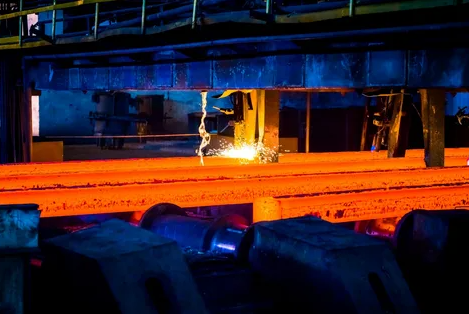The Swedish steel producer SSAB Oxelösund has delivered the world's first non-fossilized steel products to its first customer, the Volvo Group.
The product was manufactured in northern Sweden using Hybrit technology developed by SSAB in partnership with iron ore miner LKAB and utility Vattenfall. This technology uses hydrogen, which does not contain fossil hydrocarbons, instead of coal and coke.
Volvo said it will begin production of the first concept cars and machines from SSAB steel this year using hydrogen. It is planned that in 2022 small-scale serial production will begin, followed by a gradual transition to mass production.
The automaker and steelmaker will also work together on research and development to optimize the use of steel in Volvo products in terms of weight and quality. Together, the two companies will develop a range of fossil-free steel products with the aim of going into series production within a few years.
“SSAB's newly produced fossil-free steel will be an important addition to conventional and recycled steel used in trucks, construction equipment and other Volvo products,” Volvo said in a statement to the media. “The steel that does not contain fossil hydrocarbons will be produced using a completely new technology using fossil electricity and hydrogen. The result will be much less impact on the climate and value chain without fossil fuels. The steel industry believes that the demand for steel will increase significantly over the long term and that new fossil-free steel will be needed to meet this demand. ”
The Hybrit System, which stands for “Breakthrough in Hydrogen Iron Technology”, was created in 2016. However, it was in June 2021 that the companies developing it were able to demonstrate the world's first hydrogen reduced sponge iron produced at the Hybrit pilot plant in Luleå. It was the raw material used for the production of the so-called "green steel".
In particular, the pilot plant at Luleå has a direct reduction mine and several electrolytic cells for the production of hydrogen using electricity that does not contain fossil hydrocarbons. This hydrogen is used to remove oxygen from iron ore pellets, which is a prerequisite for steel production.
For pellet production, Hybrit supplied a dedicated biofuel tank and associated piping systems to the existing LKAB plant in Malmberget, making it the world's first fossil fuel-free pellet plant.
According to the firms behind the initiative, their goal is to bring fossil-free steel to the market and demonstrate the technology on an industrial scale as early as 2026. They believe that by using Hybrit technology, SSAB can reduce overall production in Sweden. carbon dioxide emissions by about 10%, and in Finland by about 7%.
“This is an important milestone and an important step towards building a value chain from mine to finished steel that is free of fossil hydrocarbons,” Jan Mostrem, President and CEO of LKAB, said in a press release. “By industrializing this technology in the future and moving towards industrial scale production of sponge iron, we will enable the steel industry to make the transition. This is the best we can do together to improve the climate. "
Subscribe to news 
Metallurgy news
- Today
17:00 16:00 S. Africa finds injury in corrosion-resistant steel imports, postpones provisional duties 16:00 Liberty Galati's restructuring has been approved, and asset sales of €690 million are planned. 16:00 15:00 Car production in Japan increased by 2.1 percent in January-November 2025 15:00 The Indian company TPREL has commissioned a 198 MW wind energy project to supply renewable electricity to Tata Steel Limited. 14:00 ArcelorMittal Brazil signs scrap metal recycling agreement with SADA GROUP 14:00 Car sales in Turkey increased by 9.8 percent in January 2026
Publications
03.02 The best cryptomarketing agencies in 2026: who really knows how to promote Web3 projects 03.02 Electrical installation robots from the Architerra Group company 30.01 Is the shell a functional part or a marketing tool? 02.02 How to choose LED lamps so that your eyes do not have to burn 27.01 Blocking an account under 115-FZ: what to do if there are no official documents?






